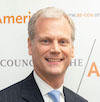Reading Time: 3 minutesThis Saturday the eyes of much of the hemisphere will be on Honduras as the United States sends its finest warriors into the country to do battle with their Honduran counterparts. No, we’re not talking an invasion by the Marines, but rather a critically-important soccer match between the two nations in qualification for the 2010 World Cup in South Africa. That fact that the game occurs smack dab in the middle of an ongoing political crisis in Honduras—with deposed President Manuel Zelaya remaining under self-imposed house arrest in the Brazilian Embassy in Tegucigalpa, and the Organization of American States (OAS) having just sent a delegation to the country to attempt to resolve the matter— is not being allowed to get in the way of the match. FIFA has spoken, and despite some misgivings by observers, no leader in their right mind dares take on soccer’s global governing body, a group that, much like the International Olympic Committee, demands fealty from even the most powerful leaders around the world (see also: Copenhagen, 2016 Olympic Summer Games). Coup or no coup, the World Cup qualifier must and will go on.
In soccer terms, the game is important because a victory by the United States, in a hostile environment, will lock in a trip to South Africa. On the flip side, Honduras is also in the hunt for one of the region’s three guaranteed slots for South Africa, but needs a result at home to keep pace with the United States, Mexico and Costa Rica. The atmosphere would already have been intense; layer upon layer of politics will make the game ever more so.
A valid case can be made that the game should be played at a Central American venue outside Honduras (or even in the United States: to be honest, the last time Honduras played in the United States it was a virtual home game for los catrachos given the number of national supporters in the stands). Be that as it may, the key now will first and foremost be to ensure the safety of the players and spectators. It will also be to ensure that the excitement surrounding the game remains self-contained. As the brief “soccer war” between Honduras and El Salvador showed in 1969 (also in a World Cup qualifier prior to the 1970 World Cup finals held in Mexico City), soccer games have the potential to ignite passions that simmer over other issues, causing an eruption of popular emotion that could potentially get out of control if not adequately contained. Anyone seeking to stir things up in Honduras—from within or without—might-well attempt to use the passions surrounding the game as a way to provoke an over-reaction by the security forces, which will quickly be condemned by the international community and give the de facto Micheletti government yet another black eye while deepening the crisis further.
More likely, however, the game will go on, the result will be self-contained, and any violence will be minimized. It will be interesting to see, though, how the result plays into the broader Honduran political environment. A victory by Honduras would certainly increase national pride, which might well be transferred to the de facto government—much as Argentina’s military dictators used their nation’s hosting of and winning the 1978 World Cup to bolster their own prospects, at least over the short term. If we want to stretch the analogy even further—perhaps too far, at least in terms of playing out to the logical conclusion efforts by governments to use sport to promote their own politics or ideology—we could throw in the 1980 Olympic Games in Moscow and the 1936 Games in Berlin. (A tie or loss by the home team could transfer to the national government as well, although the effect would probably be less pronounced.)
This game could well become one for the books.
*Eric Farnsworth is a contributing blogger to americasquarterly.org. He is Vice President of the Council of the Americas in Washington DC.
ABOUT THE AUTHOR
Eric Farnsworth
Reading Time: 3 minutesEric Farnsworth is vice president of the Americas Society and Council of the Americas in Washington, DC.
Tags: Honduras,
Olympic Games,
Soccer,
World Cup
Like what you've read?
Subscribe to AQ for more.
Any opinions expressed in this piece do not necessarily reflect those of Americas Quarterly or its publishers.




